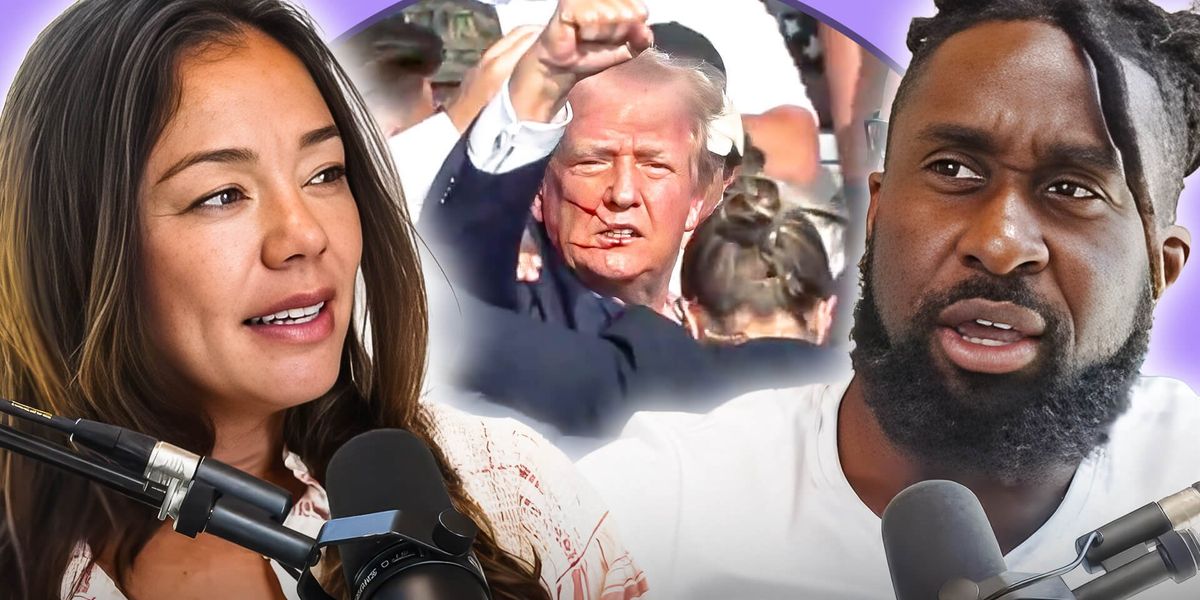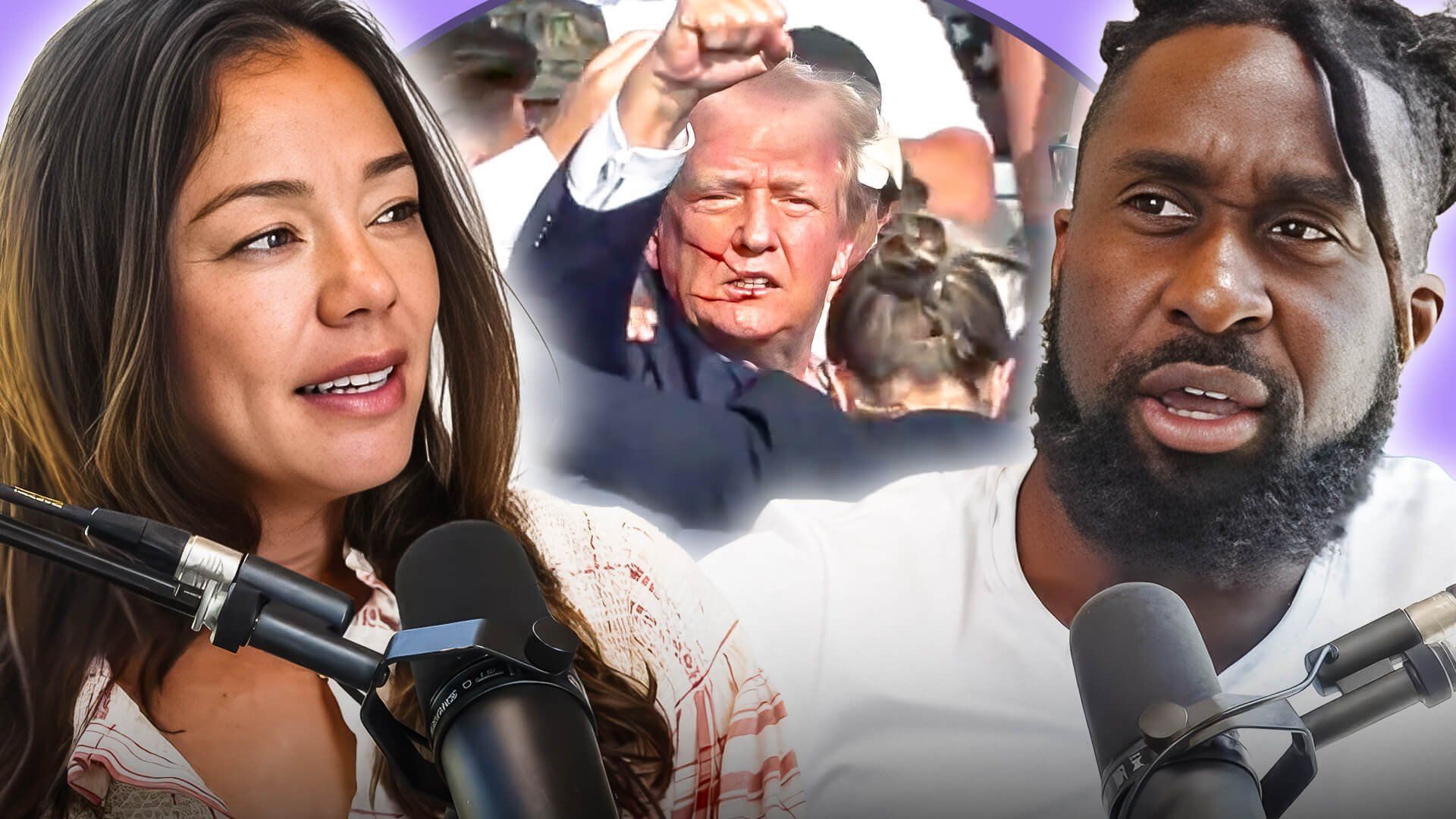

You’ve never seen a resume quite like Kaizen Asiedu’s. He’s a Harvard philosophy graduate with an Emmy-winning career at Riot Games, who’s been publicly endorsed by Elon Musk as a “clear thinker.” After years in the e-sports industry, Asiedu left his impressive role as an architect at League of Legends to pursue life coaching.
And then quite by accident, he transitioned into the political arena when he spoke out on July 13, 2024, about President Trump’s near assassination. Even though Asiedu was a centrist who usually voted liberal or just avoided politics altogether, watching Trump narrowly avoid death was “a spiritual experience,” he tells BlazeTV host Nicole Shanahan.
“When I saw him get shot and get up and put his fist up, it was like the center of my chest just jumped out of me,” he says.
“I just thought if humanity has gotten to the point where people, regardless of who shot him and why … are trying to kill one another over politics, we’ve gone too far and I need to say something.”
He made a video responding to the horrific act of violence — a “message of basic humanity,” he calls it — and it instantly went viral. Without really meaning to, Asiedu launched himself into the political sphere, where he’s since become well known for his nonpartisan approach to teaching people how to engage with politics and social issues in a way that bridges the fiery chasm that’s formed between the right and the left.
On a recent episode of “Back to the People,” Asiedu shared some of his philosophy.
“There’s just so much media manipulation and confusion and division that it’s causing people to actually celebrate violence,” he tells Nicole.
“So many of us have checked out of politics or have tried to check out … because [we] felt like there’s no humanity in it anymore. It’s just a bunch of political machinations and games and name calling, and it’s just so distasteful because politics is really supposed to just be the software upon which civilization operates. It’s not supposed to be this all-consuming thing,” he explains.
There’s a huge population in the country, he says, that doesn’t want any part of the political warring, smoke and mirrors, pandering, or media bias that’s come to define modern politics. Instead, they crave unfiltered truth and respectful discourse among people with opposing views.
“People still underestimate how many of us want that. It’s just buried under layers of extremity and the loudest voices dominating the room,” says Asiedu.
“I want realness. I want authenticity. I want people who say what they believe, even if I don’t like it because that’s how we actually can get to the point where we battle these ideas out in the public square and we come up with the best solutions,” he adds.
The other thing we need to do is “treat the truth as an inherent virtue.”
“We’re afraid that saying the truth makes us come across as judgmental. It’s like if we say, ‘Hey, a homeless person shouldn’t be able to just live on the street or be in a public park or harass people,’ then that means we’re not compassionate. It’s like, no, actually, we can be compassionate and still want boundaries,” says Asiedu.
He explains that even though much of the social media censorship that barred Americans from speaking freely during the pandemic has lightened, “There’s still a cultural suppression of having conversations about narratives that run counter to the idea that America is awful.”
For example, one of the topics Asiedu has been recently covering is slavery. In his videos, he’s been debunking the idea that slavery is a white invention, explaining that it’s “a collective evil that all humans share.”
“The common theme throughout history is not that white people [enslaved] black people … but that people with power abused people who didn’t have power,” he says.
Many have praised him for being brave enough to speak out about the false narrative around slavery, but Asiedu says “pointing out historical facts” shouldn’t have to require bravery.
But sadly, in today’s culture where even facts are considered offensive, it does take guts to speak the truth. “The reason it’s scary is because you get projected upon when you say these things. And then people will call me a race trader or say that I’m tap dancing for white people or whatever. And it’s like, look, actually the reason I’m saying it is because I think the truth is helpful for everyone,” he says.
“It’s cultural software; it’s programming. … There’s American cultural software, there’s black cultural software, there’s white cultural software, and everything in between. The problem is when we become so attached to that software, we can’t actually see people as individuals.”
He explains that for a long time black people were viewed as intellectually inferior, but today, that prejudice is aimed mostly at white people, especially white men, because progressives view them as “morally inferior.”
But this mindset is not only racist, it keeps us entrenched in the past and unable to move in a positive direction. “The only thing you can do is perpetuate the past or you can focus on the future,” says Asiedu.
If we continue to be obsessed with past sins, we will continue cultivating a culture of hatred. And “hatred hurts both the hater and the hated. So when you engage in any form of hatred, it always comes back around on you,” he warns, explaining that racism begets racism. Black resentment from slavery has transferred to white people who are decades removed from it, and that in turn is causing some white people to become racist toward black people again.
“If you keep swinging the pendulum from left to right, everyone gets damaged because hatred just keeps on getting transferred instead of getting healed,” he says.
His solution? We need a common enemy to unite us.
But that enemy “needs to be hatred and division itself,” he says.
To hear more of Asiedu’s insightful commentary, watch the full interview above.
Want more from Nicole Shanahan?
To enjoy more of Nicole’s compelling blend of empathy, curiosity, and enlightenment, subscribe to BlazeTV — the largest multi-platform network of voices who love America, defend the Constitution, and live the American dream.


















